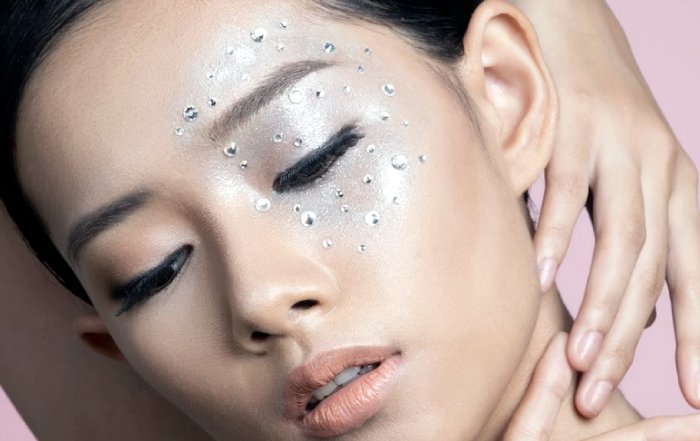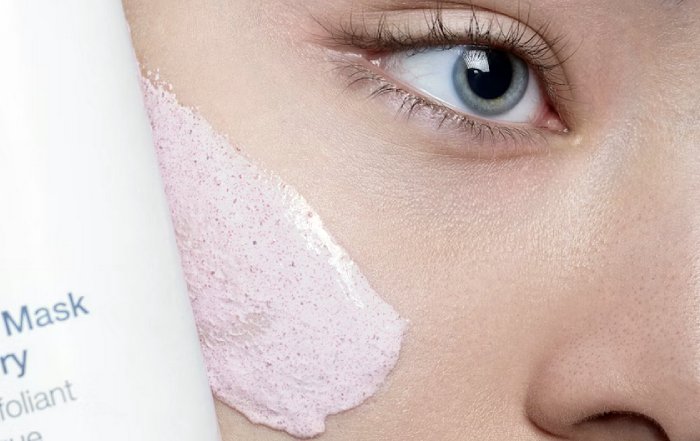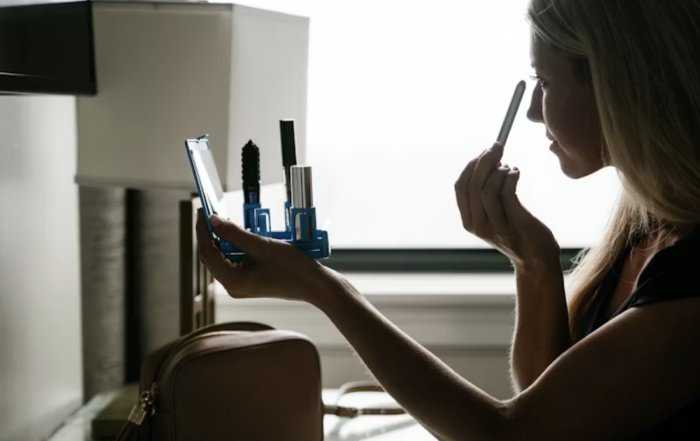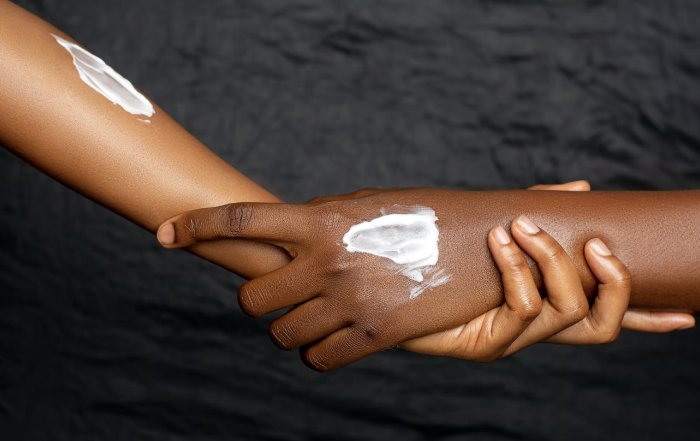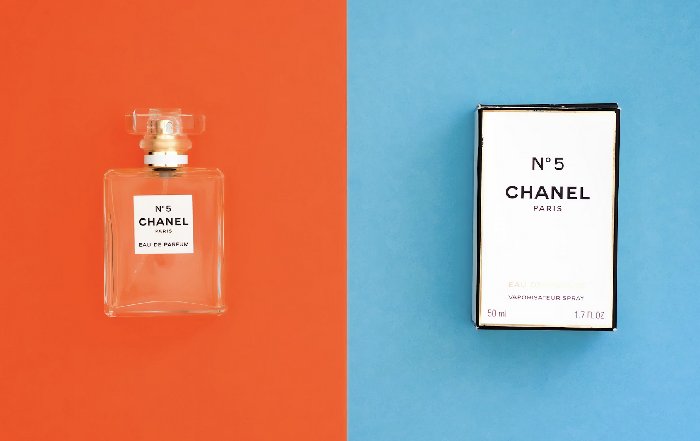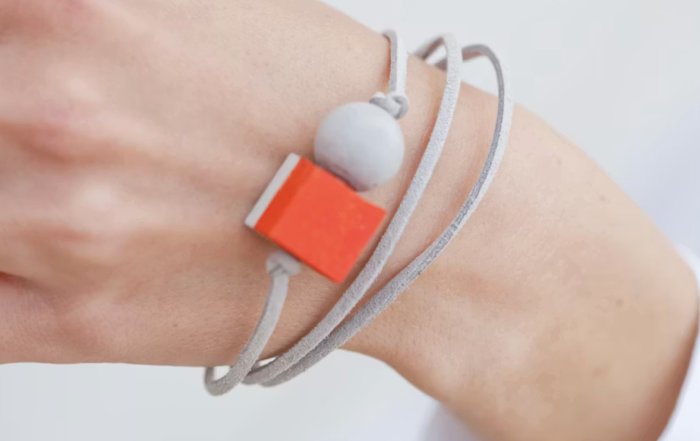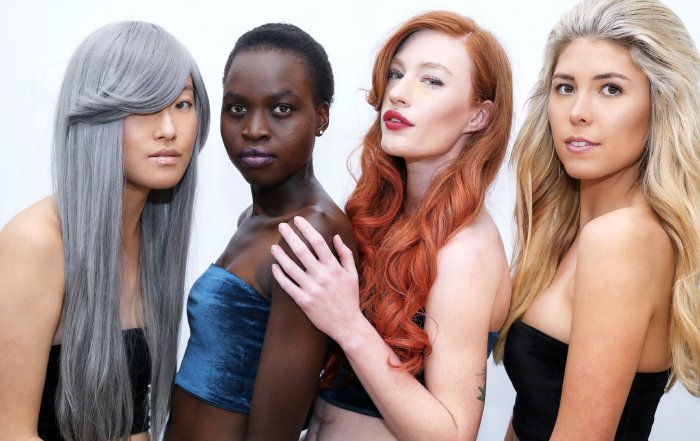The Global Power of Asian Beauty: How 2020s Skincare Was Redefined
Introduction: From Regional Trend to Global Benchmark
By 2026, Asian beauty has evolved from a niche fascination into one of the most authoritative forces in global skincare, reshaping how consumers, professionals, and investors across North America, Europe, Asia-Pacific, Africa, and South America understand skin health, product performance, and beauty culture. What started in the early 2010s with curiosity around Korean "glass skin" and Japanese minimalist routines has become a structural transformation of the worldwide beauty ecosystem, influencing research pipelines, ingredient strategies, retail formats, and consumer expectations from New York and Los Angeles to London, Berlin, Paris, Seoul, Tokyo, Shanghai, Singapore, Sydney, São Paulo, and Johannesburg.
For BeautyTipa, this shift is central to how the platform serves its international audience. Readers who come to explore contemporary beauty and aesthetics now encounter an industry where Asian philosophies, technologies, and rituals no longer sit at the periphery of Western beauty, but instead help define the standards of expertise, efficacy, and trust. Whether a visitor is based in the United States, the United Kingdom, Germany, Canada, Australia, France, Italy, Spain, the Netherlands, Switzerland, China, South Korea, Japan, Singapore, or emerging hubs across Africa and South America, the language of skincare in 2026 is deeply informed by Asian innovation and cultural influence.
Historical Foundations: From Ritual Heritage to Scientific Leadership
The global authority of Asian beauty rests on a long continuum of practices that predate the modern cosmetics industry and that have been progressively translated into rigorous scientific frameworks. In Japan, the concept of "hada no bunka"-the culture of skin-has for generations emphasized clarity, hydration, and refinement, embedded in daily life through methods such as double cleansing, gentle exfoliation, and lotion layering. In Korea, traditions rooted in Hanbang (Korean herbal medicine) cultivated an emphasis on prevention, barrier support, and long-term resilience, supported by herbal infusions, facial massage, and consistent sun protection, all of which later informed the global understanding of K-beauty.
These cultural foundations intersected with the rapid technological and economic rise of countries like Japan and South Korea from the late 20th century onward. Companies such as Shiseido, Amorepacific, and LG Household & Health Care invested heavily in dermatological research, biochemistry, and sensory science, creating sophisticated R&D infrastructures that now rival or surpass many Western counterparts. Institutions and industry bodies across Asia collaborated with dermatologists and academic researchers to systematically evaluate traditional ingredients and techniques, moving them from anecdotal heritage into evidence-based practice. This historical trajectory underpins the credibility that Asian skincare holds today, and it informs the way BeautyTipa approaches skincare education, prioritizing both cultural context and scientific validation.
K-Beauty and J-Beauty as Global Catalysts
The acceleration of Asian beauty's global influence was catalyzed by the rise of K-beauty in the early 2010s and the re-emergence of J-beauty as a minimalist, science-driven counterpoint. Korean brands, supported by a robust digital infrastructure and the global spread of K-pop and K-dramas, popularized multi-step routines, sheet masks, cushion compacts, and the now-iconic "glass skin" aesthetic. Their agility in e-commerce, social media storytelling, and cross-border logistics allowed them to reach young, digitally native consumers in the United States, the United Kingdom, Germany, France, Canada, Australia, and Southeast Asia with unprecedented speed.
Japanese brands, meanwhile, emphasized precision, stability, and long-term skin health, positioning fewer but highly sophisticated steps as the hallmark of J-beauty. Their focus on texture, absorption, and incremental improvement resonated with consumers in Europe and North America who sought efficiency without sacrificing results. Major Western conglomerates such as L'Oréal, Estée Lauder, and Unilever responded by acquiring or partnering with Asian brands, integrating their technologies and routines into global portfolios and using Asia-based innovation centers as testbeds for new formats and textures.
Trade and export data from organizations such as the Korea Trade-Investment Promotion Agency and the Japan External Trade Organization show that Asian beauty exports have consistently outpaced broader cosmetics market growth through the 2010s and early 2020s, particularly in skincare. This sustained performance has confirmed that Asian beauty is not a passing trend but a structural pillar of the global industry, shaping strategic decisions from product pipelines to retail assortments in markets across North America, Europe, and Asia-Pacific.
Ingredient Philosophy: Botanicals, Biotech, and Barrier Science
One of the most profound ways Asian beauty has influenced global skincare is through its ingredient philosophy, which balances traditional botanicals with cutting-edge biotechnology and a deep respect for the skin barrier. Ingredients such as centella asiatica, green tea, mugwort, ginseng, fermented rice, licorice root, and snail mucin-once perceived as niche or exotic in Western markets-are now widely recognized and sought after by consumers in the United States, the United Kingdom, Germany, Canada, Australia, France, Italy, Spain, the Netherlands, and beyond.
Asian laboratories and universities, often collaborating with international research bodies, have systematically investigated the anti-inflammatory, antioxidant, and barrier-supporting properties of these ingredients. The International Federation of Societies of Cosmetic Chemists has documented how research teams in South Korea, Japan, China, and Singapore have pioneered encapsulation technologies, fermentation processes, and delivery systems that allow gentle yet potent actives to penetrate effectively while minimizing irritation. This approach has helped shift global skincare discourse away from aggressive, "quick fix" solutions toward a more nuanced view of barrier health, microbiome balance, and cumulative benefit.
As a result, ceramide-rich creams, hydrating toners, essence-like lotions, and probiotic-inspired formulations have become mainstream across both mass and prestige segments. For readers of BeautyTipa refining their daily routines, this ingredient-led, barrier-centric approach encourages the design of regimens built around soothing, hydrating, and reparative layers, complemented by carefully dosed actives such as retinoids or exfoliating acids rather than dominated by them.
🌏 The Global Rise of Asian Beauty
A Timeline of How Asian Skincare Redefined the Industry
Ritual and Experience: The Multi-Step Mindset Reimagined
Asian beauty has also transformed how skincare is experienced, reframing it as a meaningful ritual that connects self-care, identity, and emotional well-being rather than a purely functional task. The concept of layering-moving from lightest to richest textures, from cleansing to hydrating to treating and sealing-emerged from Japanese and Korean routines that emphasize gradual nourishment and respect for the skin's natural rhythms. While the popularized "10-step routine" was often more symbolic than prescriptive, it shifted global expectations toward more intentional, stepwise care.
In 2026, consumers in cities like London, New York, Toronto, Berlin, Singapore, and Melbourne increasingly adapt these principles to their own lifestyles and climates, often condensing routines to four to six carefully chosen steps that still honor the layering philosophy. Media coverage by outlets such as Vogue, Allure, and clinical perspectives from organizations like the British Association of Dermatologists have helped translate these rituals into frameworks that dermatologists can support, particularly when they emphasize gentle cleansing, consistent sun protection, and barrier-supportive hydration.
Within BeautyTipa's guides and tips, this ritual-centric mindset is treated not as an indulgence but as a practical tool for adherence and long-term results. When skincare is experienced as a moment of calm and agency-whether in a busy household in the United States, a compact apartment in Tokyo, or a shared space in São Paulo-users are more likely to maintain consistent routines, which in turn improves outcomes and builds trust in the products and brands they select.
Technology Meets Beauty: Devices, Diagnostics, and Data-Driven Personalization
The convergence of technology and beauty, particularly visible in Asia, has become a defining feature of the global skincare landscape. South Korea, Japan, China, and Singapore have led the way in normalizing at-home devices, AI-powered diagnostics, and data-driven personalization, setting expectations that are now being replicated in North America and Europe. Consumers in Seoul or Tokyo have long been accustomed to encountering smart mirrors in stores, skin analyzers in clinics, and app-connected devices in their homes, and these solutions are increasingly visible in cities such as New York, London, Paris, Toronto, and Sydney.
Hardware innovations-ranging from LED masks and ultrasonic cleansing tools to microcurrent devices and home-use IPL-have often been incubated by companies like LG Household & Health Care, Panasonic, and emerging Asian start-ups, then refined through feedback loops involving dermatologists, aestheticians, and tech platforms. At the same time, AI and machine learning have been integrated into e-commerce and retail to analyze skin images, track routine adherence, and recommend product combinations, a trend extensively examined in reports from McKinsey & Company and the World Economic Forum.
For BeautyTipa, the rise of smart beauty is more than a technology story; it is a trust story. Coverage within the technology and beauty section emphasizes the importance of understanding what data is collected, how algorithms are trained, and whether device claims are supported by clinical evidence. In markets from the European Union to the United States and Singapore, evolving regulations around AI, data privacy, and medical claims are shaping what responsible innovation looks like, and Asian beauty's leadership in this space is increasingly intertwined with global standards of safety and transparency.
The Business Architecture: Investment, M&A, and Strategic Positioning
The commercial architecture of the beauty industry has been significantly reshaped by Asian brands and markets, which have become central to growth strategies for multinational corporations and investors. Asia-Pacific now represents one of the largest and fastest-growing regions for skincare, with South Korea, Japan, China, and Southeast Asia acting both as innovation hubs and as critical revenue contributors. Data from Euromonitor International and GlobalData indicates that premium skincare, dermocosmetics, and sun care are particularly strong categories, drawing sustained investment from global funds and strategic buyers.
Mergers and acquisitions over the past decade have seen Western giants acquire Asian brands to gain access to proprietary technologies, regionally relevant formulas, and deep local consumer insights. At the same time, leading Asian companies have expanded outward, acquiring niche brands in Europe and North America or launching direct-to-consumer platforms targeting global audiences. The interplay between Asian and Western capital has created a more interconnected beauty value chain, in which trends often originate in Seoul, Tokyo, Shanghai, or Bangkok before being localized for markets in the United States, the United Kingdom, Germany, France, Italy, Spain, the Nordics, and the Middle East.
For readers of BeautyTipa interested in the strategic and financial side of beauty, the business and finance section contextualizes how these investments influence product availability, pricing, and innovation pipelines. As sustainability regulations tighten in Europe, as consumer protection laws evolve in markets like the United States and Canada, and as digital platforms in Asia continue to innovate in social commerce, the companies that thrive are those able to integrate Asian expertise into a genuinely global strategy.
Cultural Soft Power: Entertainment, Aesthetics, and New Ideals
Asian beauty's influence is inseparable from the broader cultural soft power emanating from Asia, particularly South Korea and Japan, but increasingly also China, Thailand, and other creative hubs. The global reach of K-pop, K-dramas, anime, J-dramas, and Asian cinema has introduced millions of viewers to aesthetics characterized by luminous skin, subtle contouring, gradient lips, and an emphasis on natural, healthy radiance over heavy coverage. Artists and actors from groups and productions associated with BTS, BLACKPINK, and leading Japanese and Korean dramas have become powerful beauty reference points, with their skincare routines and product choices dissected across Instagram, TikTok, YouTube, and local platforms such as Weibo and Line.
Cultural institutions and analysts, including the Korea Foundation, have documented how this cultural wave has extended into beauty tourism, with international visitors traveling to Seoul, Tokyo, Osaka, Bangkok, and Singapore for skincare treatments, cosmetic procedures, and specialized shopping experiences. These journeys often blend medical aesthetics, retail discovery, and cultural immersion, reinforcing the perception of Asian cities as global beauty capitals. The result is a feedback loop in which entertainment content drives product curiosity, which in turn amplifies the visibility and desirability of Asian brands and techniques.
Within BeautyTipa's trends coverage, this phenomenon is examined not only through the lens of product adoption but also in terms of shifting beauty norms. The influence of Asian beauty has contributed to a broader acceptance of diverse skin tones, facial features, and gender expressions, particularly as male idols and actors normalize skincare and subtle makeup, and as regional markets such as South Korea, Japan, Thailand, and China engage in nuanced conversations around masculinity, femininity, and self-presentation.
Beyond Korea and Japan: A Mosaic of Regional Approaches
Although K-beauty and J-beauty remain highly visible, the broader Asian beauty landscape is far more diverse, with numerous countries contributing distinct perspectives that are increasingly recognized on the global stage. In China, a new generation of C-beauty brands blends traditional Chinese medicine with modern dermatology, drawing on ingredients such as astragalus, peony, and various medicinal mushrooms to address concerns ranging from hyperpigmentation to pollution-induced sensitivity. In Southeast Asia, brands from Thailand, Malaysia, Singapore, and Indonesia focus on humidity-friendly textures, anti-pollution strategies, and melanin-conscious formulations tailored to tropical climates and diverse skin tones.
India's rich Ayurvedic heritage has inspired both domestic and international brands to explore plant-based, dosha-informed formulations, while markets like Vietnam and the Philippines are nurturing agile indie labels that combine local botanicals with Korean and Japanese textures. The Asian Development Bank has highlighted how rising disposable incomes, urbanization, and digital connectivity across Asia are driving demand for premium skincare and sun protection, encouraging local brands to invest in R&D, sustainable sourcing, and export strategies.
For the global readership of BeautyTipa, particularly those interested in international perspectives, this means that "Asian beauty" cannot be reduced to a single narrative. Instead, it is better understood as an evolving network of regional approaches, each shaped by climate, cultural values, regulatory frameworks, and consumer priorities. This diversity offers a rich palette of solutions that can be adapted for consumers in Europe, North America, Latin America, Africa, and Oceania, whether they are seeking minimalist routines, sensorial rituals, or targeted dermocosmetic interventions.
Wellness, Lifestyle, and the Inside-Out Paradigm
A defining contribution of Asian beauty to global skincare has been the normalization of an inside-out paradigm that connects topical care with diet, sleep, stress management, and overall wellness. Traditional systems such as Japanese Kampo, Korean Hanbang, Ayurveda, and traditional Chinese medicine have long treated the skin as a reflection of internal balance, linking issues such as inflammation, dullness, and premature aging to digestion, circulation, and emotional stress.
Modern research has increasingly validated these connections. Institutions like the World Health Organization and the Harvard T.H. Chan School of Public Health have highlighted the impact of nutrition, environmental pollutants, and chronic stress on systemic inflammation and skin health, giving scientific weight to practices that Asian cultures have integrated for centuries. In response, consumers worldwide are adopting a more holistic approach, pairing serums and sunscreens with balanced diets, hydration, mindfulness, and exercise.
This convergence is reflected across BeautyTipa's coverage of wellness, health and fitness, and food and nutrition, where skincare is treated as part of a broader ecosystem rather than an isolated category. Readers from the United States, Europe, Asia, Africa, and South America increasingly seek guidance on how to align their routines with lifestyle choices, whether that means adjusting products for high-pollution environments, incorporating stress-reduction techniques, or choosing ingredients that support sensitive, reactive skin.
Sustainability and Ethics: Toward Responsible Innovation
As environmental and ethical concerns become central to consumer decision-making, Asian beauty's evolution is increasingly intertwined with global sustainability agendas. Brands across Japan, South Korea, China, and Southeast Asia are experimenting with refillable packaging, reduced-plastic formats, and eco-certified ingredients in response to both consumer demand and regulatory pressures in regions such as the European Union, the United Kingdom, and parts of North America and Asia-Pacific. Organizations including the Ellen MacArthur Foundation and the United Nations Environment Programme have called for circular economy models and more responsible consumption, prompting beauty companies to rethink sourcing, manufacturing, and end-of-life product design.
In this context, Asian brands are exploring biotech-derived actives, water-saving formulas, and local cultivation of botanicals to reduce carbon footprints and supply-chain risks. Cruelty-free standards, vegan formulations, and transparent ingredient lists are becoming more prevalent, particularly for brands targeting global distribution. These efforts intersect with regulatory changes, such as evolving animal-testing requirements in China and tightening ingredient safety regulations in Europe, creating a complex but ultimately more accountable landscape.
For consumers who rely on BeautyTipa to evaluate brands and products, sustainability and ethics are now essential dimensions of trust alongside efficacy and sensory experience. The most credible brands in 2026 are those that can demonstrate not only visible results but also responsible sourcing, honest communication, and meaningful progress toward environmental and social goals.
Careers and Capabilities: Employment in an Asian-Influenced Beauty World
The rise of Asian beauty has also reshaped the global employment landscape within the beauty and wellness sectors, creating new roles and skill requirements across R&D, marketing, retail, digital, and regulatory functions. Multinational corporations and fast-growing indie brands alike increasingly seek professionals who understand Asian formulations, consumer behaviors, and cultural nuances, whether they are based in New York, London, Berlin, Paris, Toronto, Singapore, Seoul, Tokyo, Shanghai, Sydney, Dubai, or Johannesburg.
Cosmetic chemists with experience in Asian textures and botanicals, marketers versed in K-beauty and J-beauty storytelling, and retail specialists trained in multi-step routine consultation are in high demand. Professional bodies such as the Society of Cosmetic Chemists and leading universities have expanded their curricula to include cross-cultural product development, regulatory diversity, and digital-first go-to-market strategies. At the same time, creators and educators on social platforms have become important intermediaries, translating Asian beauty concepts for local audiences and influencing purchasing decisions across continents.
For readers exploring career paths via BeautyTipa's jobs and employment section, the message is clear: linguistic skills, regional literacy, and digital fluency are valuable assets in a beauty industry that now operates as a truly global network. Whether someone is interested in formulation science, brand building, content creation, or retail leadership, understanding Asian beauty is no longer optional; it is a differentiator that can open doors across markets and roles.
Looking Ahead: Convergence, Co-Creation, and the Role of BeautyTipa
By 2026, the influence of Asian beauty on worldwide skincare is best described as a dynamic process of convergence and co-creation rather than a one-way transfer of trends. Western dermatological research, European regulatory rigor, North American marketing innovation, and Asian technological and cultural leadership are increasingly interwoven, resulting in hybrid routines and products that combine the strengths of multiple traditions. Consumers in the United States, the United Kingdom, Germany, France, Canada, Australia, South Korea, Japan, China, Singapore, Brazil, South Africa, and beyond routinely mix K-beauty essences with European serums, Japanese sunscreens with American retinoids, and Southeast Asian botanicals with Scandinavian minimalist formulas.
Global e-commerce, cross-border logistics, and social media communities have made this mixing and matching not only possible but intuitive, while a more educated consumer base demands transparency, clinical validation, and respect for cultural origins. In this environment, the most trusted voices are those that can explain not just what to use, but why it works, how it is sourced, and how it fits into an individual's lifestyle, climate, and values.
For BeautyTipa, serving a global audience that spans skincare, makeup, fashion, wellness, and business, this means acting as a bridge between regions, disciplines, and perspectives. The platform's role is to translate complex scientific concepts into actionable guidance, to contextualize trends within broader cultural and economic shifts, and to help readers design routines and strategies that are both personally meaningful and globally informed. As Asian beauty continues to shape the future of skincare, BeautyTipa remains committed to Experience, Expertise, Authoritativeness, and Trustworthiness, offering its worldwide community the clarity and depth needed to navigate an increasingly sophisticated and interconnected beauty landscape.

